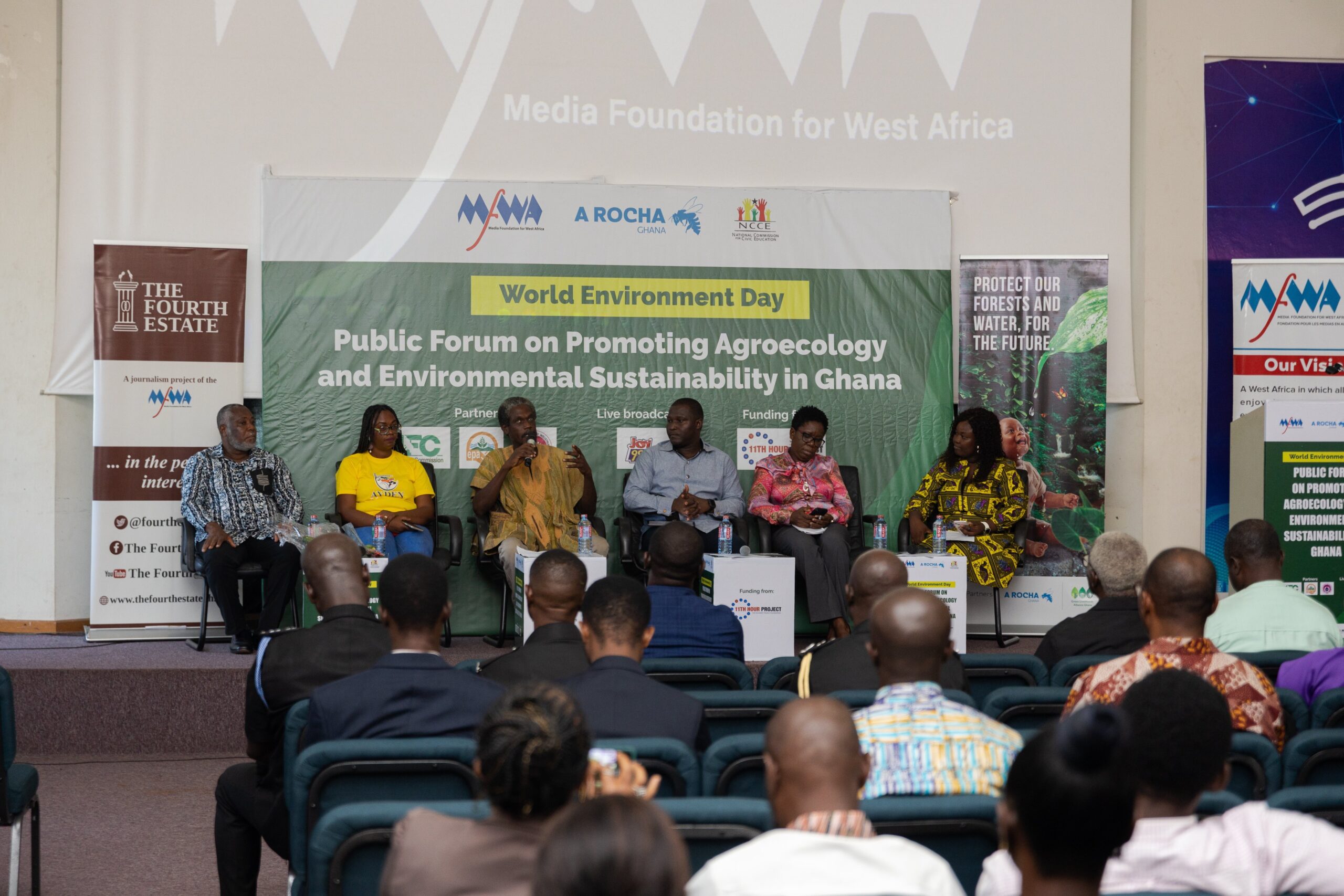The media in Ghana have been called upon to amplify agroecological solutions to policymakers and farmers as better alternatives to prevailing chemical-based agricultural practices. At a forum organized in Accra by the Media Foundation for West Africa (MFWA) to mark World Environment Day 2024 on 5th June 2024, stakeholders extolled the positive environmental benefits of agroecology and highlighted its climate-change reversing advantages.
The one-day forum, under the theme: Journalism, Agroecology and Environmental Sustainability in Ghana, was organized in partnership with A Rocha Ghana, the National Commission for Civic Education (NCCE), CSIR-Water Research Institute, Centre for Indigenous Knowledge and Organisational Development (CIKOD) and Food Sovereignty.
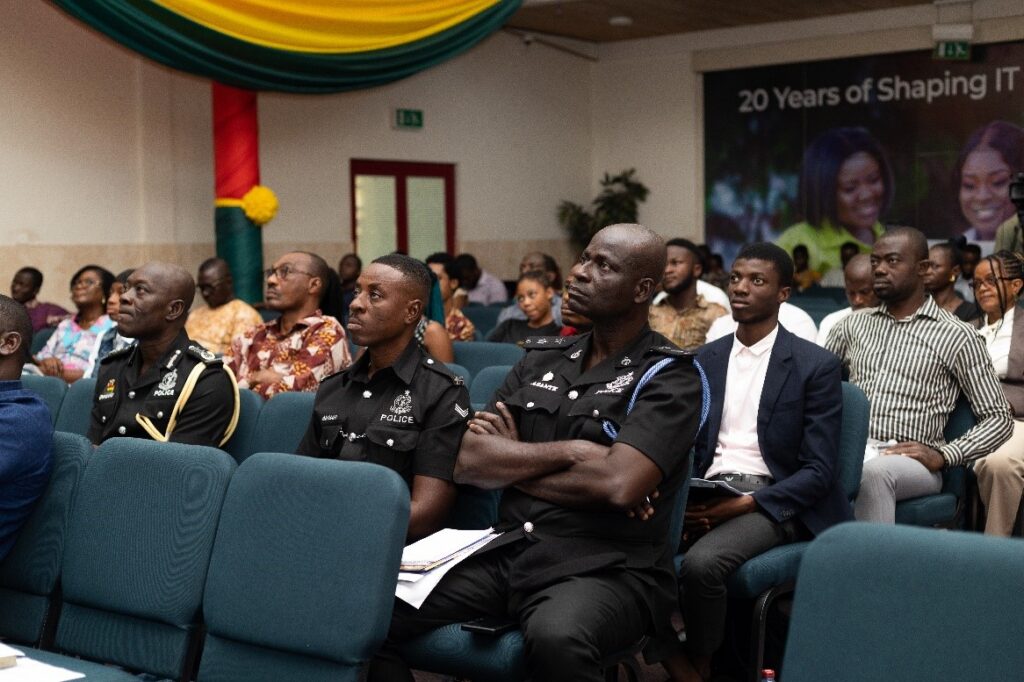
Organized with funding support from the Schmidt Family Foundation, the forum brought together activists, state actors, civil society and political party representatives, and the media to deliberate on how best to promote agroecology in Ghana.
Stakeholders acknowledged that it will take aggressive awareness-creation and consistent agenda setting to unculture farmers and convince policymakers to change from chemical-based agriculture, which is harmful to the environment.
Agroecology
According to The Agroecology Fund, a Fund set up in 2011 to promote agroecology globally, it is an integrated approach that applies ecological and social concepts to the design and management of food and agricultural systems. Within a justice and rights framework, it seeks to minimize external inputs and optimize sustainable interactions between plants, animals, humans and the broader environment.
At the forum, experts pointed out that agroecology is not a new form of agricultural practice; it is an age-old farming method that is friendlier to nature since the integration of animal husbandry with crop farming means that manure from the animals, for instance, are used as fertilizer for farms rather than industrial chemicals which destroy naturally existing microorganisms. It was pointed out that agroecology also preserves the food chain, allowing species to naturally play their roles in nature’s delicate balance of biodiversity.
Kunming-Montreal Global Biodiversity Framework
Prof. Alfred Oteng-Yeboah, Board Chairman of A Rocha Ghana, who was Guest Speaker at the forum, noted in his keynote address that one of the strategic roles journalists can play to champion agroecology is to monitor Ghana’s implementation of the Kunming-Montreal Global Biodiversity Framework.
“It is in monitoring and assessing the global and national indicators that the role of journalists will be found to be very prominent,” he said, challenging journalists to go the extra mile to investigate and tell the success stories of agroecological farmers.
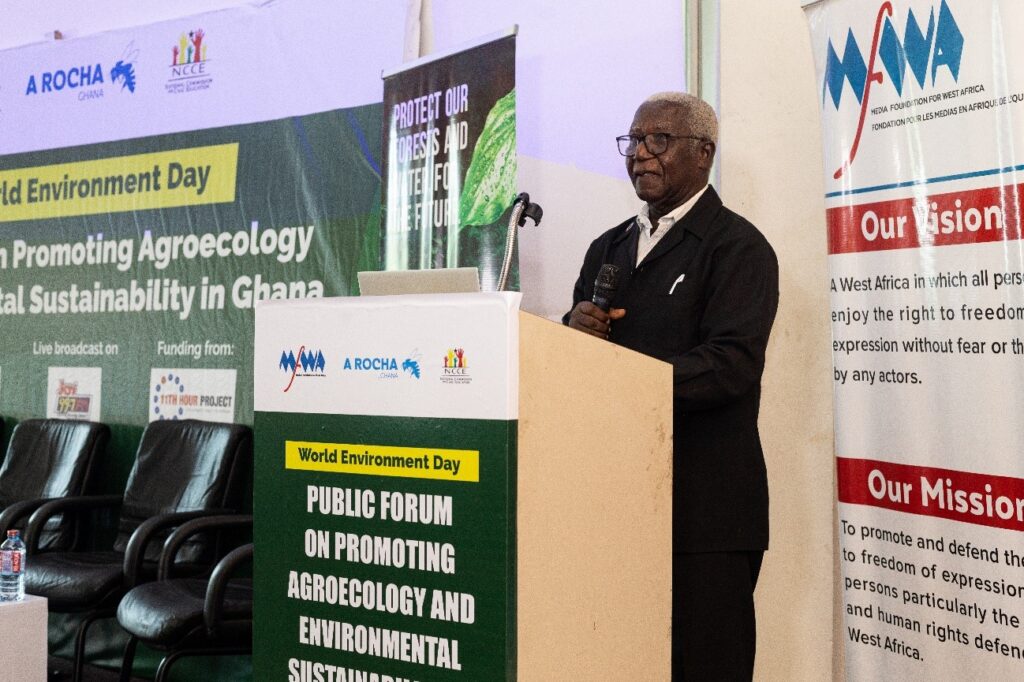
Anchorage of PFJ on chemicals is problematic
Dr. Kojo Impraim, Director for the Media for Peace and Sustainable Development Programme at the MFWA, who represented Mr Sulemana Braimah, Executive Director, noted in his welcome address that the anchorage of Ghana’s five-year masterplan for food security – Planting for Food and Jobs (PFJ) – on the distribution of certified and modified high yield seeds, and concentration on the use of pesticides and weedicides is problematic.
“Related to the above problem is the failure of the government to regulate the use and abuse of agrochemicals by farmers. These practices undermine indigenous, agroecological and environmental practices.”
He said the consequences have been difficulty of access to local seeds and organic farm inputs by smallholder farmers who want to practice agroecology and other sustainable models of agriculture.
“The current methods of chemical and fertiliser-dependent agriculture have also reduced land quality and soil resilience; shifted consumer choices, taste; and disproportionately threatened nutritional values of food with dire health consequences; among other challenges”.
Unfortunately, he said, the public is largely unaware and less informed about the multiple harmful effects of current expansionist agricultural methods on the environment, and on the livelihoods of smallholder farmers.
Success stories on agroecology already exist
A documentary on Agroecology: A Blend of Productivity and Sustainability, filmed by The Fourth Estate, the MFWA’s accountability journalism project, was premiered at the forum. It spotlighted success stories of farmers using agroecological practices in Ghana.
Dr. Impraim said the MFWA, through The Fourth Estate, will carry out advocacy to create awareness and promote agroecology. “In the coming months, we (MFWA and TFE) commit to amplifying the voices of farmers, scientists, policymakers, and activists driving the agroecological movement. Through investigative journalism, thoughtful analysis, and community involvement, we aim to inspire action and facilitate a shift towards a fairer, more resilient, and regenerative food system.
Journalists must play vanguard role
The highlight of the forum was two-panel discussions that explored the state of agroecology within the Ghanaian context. The panels featured activists, experts, political party representatives and journalists.
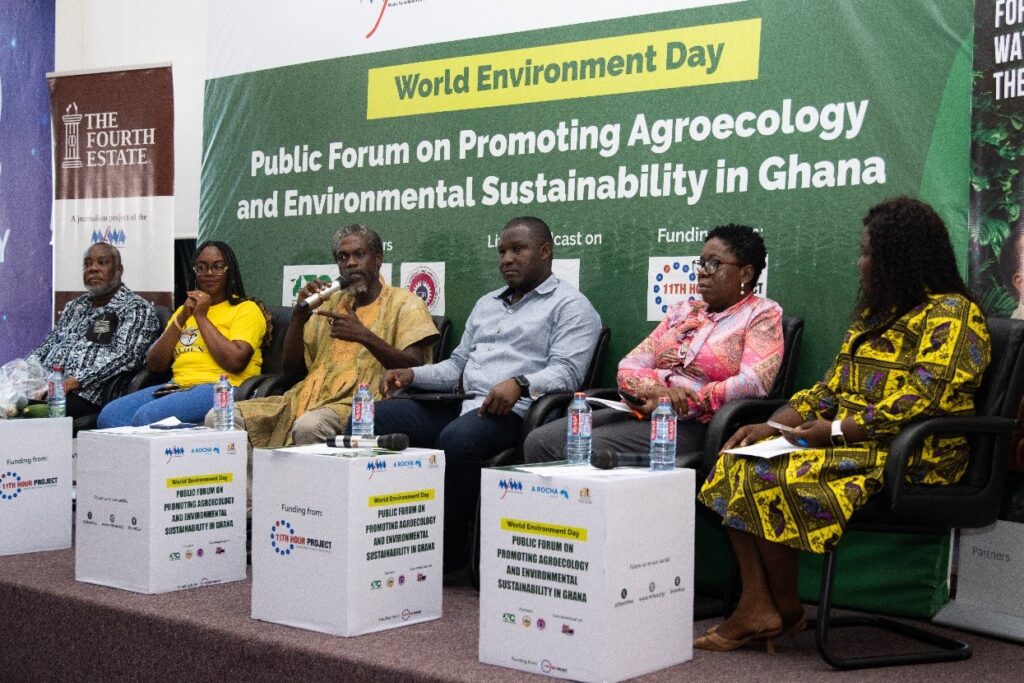
The first of the two panels discussed the topic: Journalism, Agroecology and Environmental Sustainability in Ghana. Panelists generally concurred that agroecology is a very good model of agriculture that has multiple benefits and is ideal for the reclamation of lost biodiversity and for combatting climate change. However, the model is not popular among Ghanaians. They urged the media to take up the duty to champion its popularity.
Lack of political will is bane to agroecology
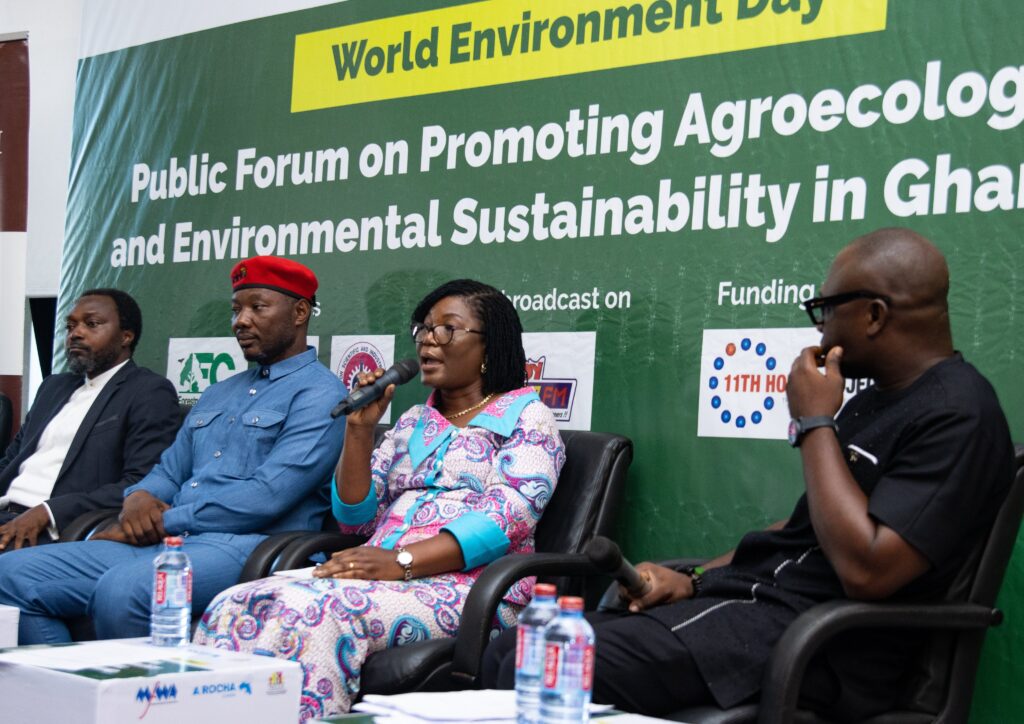
The second panel, consisting of representatives from three political parties – National Democratic Congress (NDC), Peoples National Convention (PNC) and Convention Peoples Party (CPP), agreed that even though agroecology is very beneficial, there has not been sufficient policy and legislation to promote it. According to the panel, this is due to the lack of political will. Two of the parties – PNC and CPP – promised to pursue radical policies that will mainstream agroecology, while the NDC said it has already incorporated agroecological promotion into its manifesto to be pursued as policy if the party is re-elected into office.



